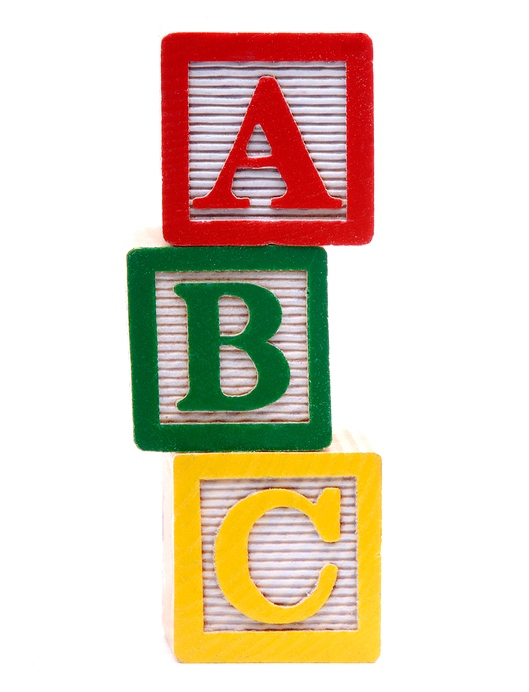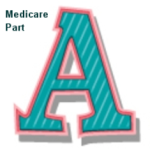 This is the first article in a series of articles discussing the basics of Medicare. Today’s article is an introduction to Medicare, including who qualifies, what expenses are covered and how to enroll. Look for more “The ABCs of Medicare” articles soon.
This is the first article in a series of articles discussing the basics of Medicare. Today’s article is an introduction to Medicare, including who qualifies, what expenses are covered and how to enroll. Look for more “The ABCs of Medicare” articles soon.
Medicare is health insurance offered by the Federal government. The following people may qualify for Medicare:
- People age 65 or older,
- People under age 65 with certain disabilities, and
- People of any age with End Stage Renal Disease (ESRD) – permanent kidney failure requiring dialysis or a kidney transplant.
Medicare helps pay for health care, but it does not cover all medical expenses. Medicare is divided into four parts:
Part A, generally called hospital insurance, covers services associated with inpatient hospital care (including an overnight stay in a hospital, skilled nursing facility, or psychiatric hospital). Part A also covers hospice care, home health care and medications received while in the hospital.
[adsense]
Part B covers your doctor bills and other outpatient services. Some of the bills covered include medical equipment, lab tests and rehab. Doctor’s services are paid by Part B whether received in the hospital or in the doctor’s office. While Part A covers medicines received while in the hospital, medicines administered in a doctor’s office are covered by Part B. Other services covered under Part B include ambulance service, preventive care and annual wellness visits.
Part C is a different creature altogether. Instead of covering specific benefits, Part C offers you a different way to receive your Medicare benefits. Basically, Part C is an insurance package that covers Part A, Part B and sometimes even Part D benefits. Part C is often referred to as Medicare Advantage.
Part D covers prescription drugs, including insulin supplies and some vaccines. The only way to get prescription coverage is to enroll in a Part D drug plan or to join a Medicare Advantage plan that includes prescription coverage.
Services not covered by Medicare: Medicare covers services that it deems “medically necessary”. Not included in this definition are vision, hearing and dental care. Also, nursing home care and medical services received outside the United States are not covered.
Example of how Medicare coverage works: Assume you break your hip and go into the hospital for four days for treatment. Medicare Part B covers the cost of taking an ambulance to the hospital. Medicare Part A covers your expenses while in the hospital, such as your room, meals, and nursing care. Part A also covers the cost of the emergency room and medications received while you are in the hospital. Medicare Part B pays for your doctor bills, physical therapy and the cost of using a wheelchair. Note that your doctor bills are covered whether you see your doctor while in the hospital or at the doctor’s office.
Enrolling in Medicare
Enrollment in Medicare is usually automatic. Any individual who receives Social Security benefits before age 65 or who applies for Social Security benefits at age 65 will be automatically enrolled in Medicare.
However, if you are not already receiving Social Security, you will not be notified that you qualify for or that should apply for Medicare benefits.
You should enroll at age 65 if you are not working and don’t have employer insurance. If you are beyond age 65 you should enroll within 8 months of stopping working, even if you have elected COBRA coverage. Failing to enroll on time could result in permanent penalties.
The general enrollment period (if you miss your enrollment deadline) is from January 1 to March 31 each year, with coverage beginning the following July 1. You will pay a late penalty of 10 percent (this is a permanent penalty) for each 12-month period you delayed enrolling. This penalty is added to your Part B premiums.
The open enrollment period for Part D is October 15 through December 7 each year, with coverage beginning on January 1.
You can enroll online at Medicare.gov or you can call the Social Security Administration at (800) 772-1213.





Rebecca says
I turn 65 in July of 2013 . I already receive a social security benefit check. Will I automatically be enrolled in Medicare or do I pursue ? If so when?
kristine says
Rebecca – Thank you for the question. Yes, since you are already receiving Social Security, enrollment in Medicare for you should be automatic. You will receive your Medicare card three months before your 65th birthday and your benefits will start the month you turn 65. Medicare enrollment is handled by Social Security so if you do not receive your Medicare card or if you have other questions, contact Social Security directly at http://www.ssa.gov or (800) 772-1213.
For those of you who are not already receiving Social Security when you turn age 65, Medicare enrollment is NOT automatic. You will need to contact Social Security directly to enroll. You should enroll in Medicare three months before your 65th birthday to avoid any delay in benefits.
Rina r Zecca says
Please help ! I will be 62 February 9 2013 , I have not enrolled , is it too late? Is there a dead line for enrolling at 62? Thank You. Rina
kristine says
Rina, You don’t qualify for Medicare until age 65 (unless you are disabled and have been receiving Social Security for at least 24 months). So you’ve got plenty of time to enroll for Medicare. If you’re talking about Social Security retirement benefits, I would suggest you contact Social Security directly about applying for benefits. Go to ssa.gov to apply.